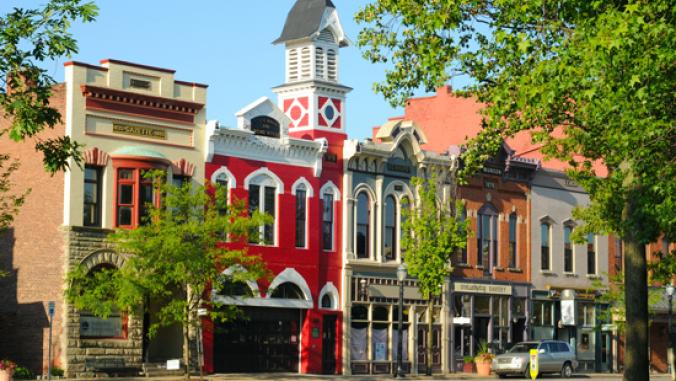Taking Stock of Progress on Smart Cities
<p>This year's Meeting of the Minds conference, kicking off today in Boulder, brings together industry, nonprofit and governmental leaders for a no-holds-barred look at how well smart technologies are progressing.</p>

Every day, we are seeing rapid growth in commitments to and projects around smart grid, smart cities and smart transportation -- an evolution and convergence of technologies that we call VERGE.
It encompasses a huge number of business opportunities that touches almost every industry, and could grow to a $40 billion market by 2016 -- if the companies and organizations creating these technologies can get it right.
For the last five years, a shifting consortium of companies and non-profit organizations has held an annual event, The Meeting of the Minds, aimed at bringing the leaders of these technological revolutions together for a no-holds-barred look at how well these smart technologies are performing in the real world.
 "We have to be brutally honest with each other about what works and what doesn't," explained Gordon Feller, the director of Cisco's Urban Innovations Public Sector Practice and one of the creators of the Meeting of the Minds conference. "We're seeing that there's a lot of hunger for the ability to measure it so you can manage and ultimately change it."
"We have to be brutally honest with each other about what works and what doesn't," explained Gordon Feller, the director of Cisco's Urban Innovations Public Sector Practice and one of the creators of the Meeting of the Minds conference. "We're seeing that there's a lot of hunger for the ability to measure it so you can manage and ultimately change it."
The Meeting of the Minds 2011 conference kicks off today in Boulder, Colo., and concludes on Friday with a free public webcast. I spoke with Feller about what's changed over the last five years, and what will come out of the conference this year. (You can read our coverage of the 2007 Meeting of the Minds here.)
He said that the meeting continues in the same vein as it started, as a joint project of Toyota and the Urban Age Institute back in 2006. The goal at the time was to get people from competing industries together to talk about how they're doing in creating and implementing these technologies.
"We needed to put aside the rhetoric and sloganeering about smart and sustainable cities," Feller said, "and really get to what's really working, what's it going to cost, who are the actors that need to be at the table."
The resulting conference is something of a novelty: A group of core sponsors -- this year it includes Cisco, Deutsche Bank, Philips and others -- work together for a full year to define the areas that most need the focus of the conference attendees for the two full days of the event.
This year's focus is on the network as the fabric of what Cisco calls "Smart + Connected Cities." And along with the network infrastructure being sound, it's critically important that the various technologies being developed to work on that network can interact.
That means bringing together the big players across industries -- including tech companies like Cisco and IBM, buildings and facilities firms like HOK and Jones Lang LaSalle, utilities like Duke Energy and NRG, and automakers like Ford and Toyota. It also gets the many other critical elements of smart cities projects in the room, including NGOs, governments, universities and funders.
Feller said that this year's conference stems from a growing recognition that the various elements of smart cities -- intelligent buildings, smart mobility, smart grids, and so on -- all have a common ground, and a common need to work together.
"Those pieces are increasingly seen as intimately, tightly integrated with each other, and the network as the platform is the integrator," Feller said. "The building cannot stand alone on an island -- there's tremendous value in connecting to a smarter grid infrastructure that allows you to benchmark against others."
Taking stock of what's working and what's falling short is both increasingly important and increasingly possible as a number of smart infrastructure projects are starting to hit their stride around the world.
Whether we're looking at smart city projects in Amsterdam or Dubuque -- or any of the other projects that will be part of a projected $40 billion market by 2015 -- or even slightly less ambitious smart vehicle or smart buildings projects, it's important to take stock of if progress is being made so that it can be accelerated.
To watch the discussions of how smart cities are evolving, portions of this year's Meeting of the Minds are going to be webcast; you can read the scheduled and register for the free event here.





